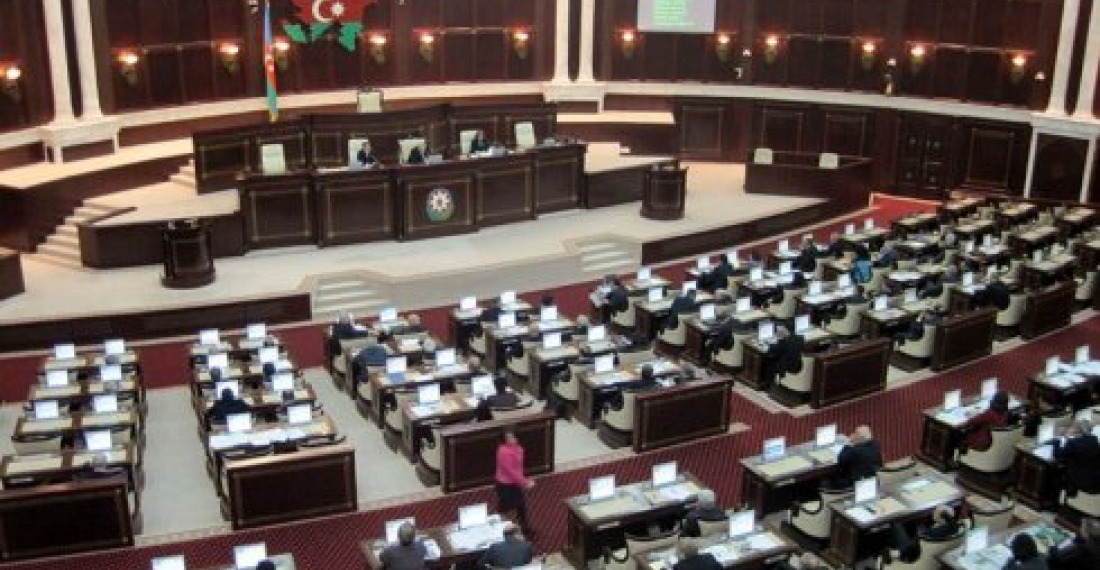A number of Azerbaijani MPs have expressed different opinions on the country's relations with Russia, at a session of the Milli Meclis, the country's parliament held on Tuesday (29 November).
APA news agency reports from Baku that one of the MPs, Gudrat Hasanguliyev, said that Baku needs to demonstrate a strict position towards Moscow after the recent deployment of Russia's Iskander missile systems in Armenia, and "threatening remarks" made by President Sargsyan in Moscow.
APA quoted the MP as saying that during the April fighting Sargysyan was looking for a mouse hole to hide.
"However, after he found a mouse hole in Moscow, he immediately began to make "threatening remarks" on us," said Hasanguliyev. "Feeling confident after Russia's supply of Iskander missile systems to Armenia, he "grew bolder.""
According to the MP, Azerbaijan favors the improvement of relations with Russia.
"However, it's also obvious that though Russia acts as an intermediary in the settlement of the Armenia-Azerbaijan Nagorno-Karabakh conflict, this country at the same time backs the occupying state. The level of the Russia-Armenia ties does not match that of the Russia-Azerbaijan ties," he added.
The MP noted that though the Russia-Azerbaijan ties are of strategic nature, the reality proves otherwise.
"We should no longer turn a blind eye to it. We need to reconsider our bilateral relations with Russia," Hasanguliyev said, adding. "If Russian is really willing its relations with Azerbaijan to be based on strategic partnership, then it needs to demonstrate an unbiased and neutral position regarding the Nagorno-Karabakh conflict. If Russia does not change its attitude towards Azerbaijan, then Azerbaijan should get closer to countries such as Israel and Pakistan."
In his speech, MP Fazil Mustafa noted that despite the free broadcasting of Russian TV channel Mir in Azerbaijan, this channel has never highlighted Azerbaijan's main problem - the occupation of its territories.
"Though, the channel is financed by the Azerbaijani side, no stories about the Nagorno-Karabakh conflict and the Khojaly genocide has been aired on it. However, the Armenian office of the channel highlights the country's problems. In this case, there is no need for broadcast of this channel in Azerbaijan," he said.
However, another parliamentarian, Rasim Musabeyov, rejected the harsh remarks on Russia, stressing the importance of expanding friendly relations with this country in order to achieve the Nagorno-Karabakh conflict's settlement.
In the meantime, in Armenia,Armenian people must decide through a referendum, whether to give Russian the status of second official language in Armenia.
The First Secretary of the Central Committee of the Communist Party of Armenia, Tachat Sargsyan, told a press conference that the Armenians should decide through a referendum to grant the Russian language the status of official languange.
The Armenian Communist leader said that it was very desirable that each and every Armenian speaks Russian. This does not mean that there is no need to master other languages," he added.
source: commonspace.eu with APA and news.am
photo: The Azerbaijan Parliament (archive picture)






